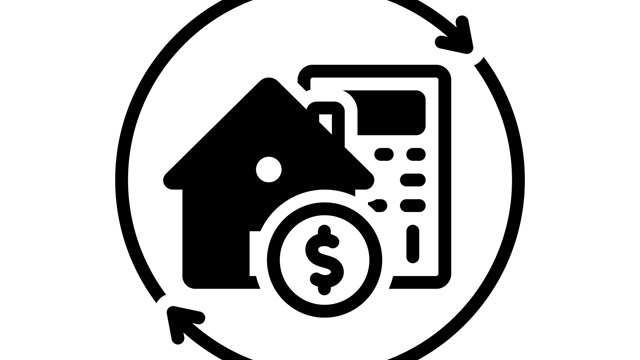As they gaze across azure seas, past palm trees and swimming pools on a tropical coastline, prospective buyers on HGTV’s “House Hunters” show always ask about the fees. Unlike most would-be residents, though, they might not bat an eye at the price tag. Closer to home, savvy home shoppers watch the trends in condo pricing, and want to ascertain just what they’ll pay monthly, on top of the purchase price. If the bottom line is expensive to most lookers, then selling those units can become a challenge.
Boards facing increased costs know this, but they have few options when costs outweigh revenue: raise monthly fees, charge a special assessment, or cut expenses. And, while reductions may rein in costs, they’re also sure to annoy residents who have come to view amenities and services as guaranteed. The fees they pay go toward maintenance, landscaping, utilities for common areas and outdoor space needs; they may regard any service reduction as unacceptable.
Associations uncertain of their financial ground are likely to make poor decisions based on false economies; not knowing your true fiscal status is a good indicator that basic homework hasn’t been done. A clear spreadsheet tells the story—to both board members and residents—so it should be at hand if a board is about to change fees or services. David Abel of First Realty Management in Boston says staying current is essential if a board is to understand expenses and revenue needs. The budget should be new every year, he says. “Look at every line item to calculate what they’re going to be this year.”
Let’s Talk About It
Open communication is vital. Managers say straightforward informational channels between the association and residents is usually the best approach. Clarity, communication and cooperation with residents are key elements of any change.
Ron Brown, president of R. Brown Partners in Boston, which manages 40 Massachusetts condominium properties, from single up to 106 units, speaks of “the trap.” Making short-sighted decisions can lead a board down a dark uncertain path.
Because keeping fees reasonable enhances a condominium’s value, Brown says, “the lower the fees, the greater the values because the easier they are to sell.” But in trying to keep costs down, and not increase fees, some managers fall into the trap. “It’s more prevalent when condominiums are small and self-managed,” he says. “Every time they have a problem, they have to do a special assessment. When people see several increases in special assessments, they know the fees are being kept artificially low.” The unpredictability of special assessments can be disconcerting to prospective owners, who want to know in advance what their expenses are likely to be.
These problems are exacerbated by what Brown calls expense wild cards: snow removal costs and repairs. Given Boston’s 78.8-inch snowfall last winter—more than double the average 35.5 inches—it’s easy to see plowing as a significant budget factor. And reducing amenities to pay for repairs is not always the right answer. “There’s not a lot of elasticity in that,” Brown says. “There’s only so much you can save. You can look at insulation, energy efficiency, new windows, and so on, and the incremental savings … are just not that great. There’s not a lot of options, and it doesn’t really amount to a great deal of savings.”
Plan ahead, he says, and look for savings. Brown’s best cost-cutting revolves around group negotiation on the purchase of essentials such as insurance and utilities.
“Lower fees make condos look better … but there are exceptions,” Brown says. He cites a small, high-end condominium in Boston, where fees are high because the residents demand high levels of service and expect to pay for it. Still, he says, that is not the norm.
When it comes to maintenance, by most standards it’s wise to stay abreast of needs, planning each year’s budget to include upkeep. The price for failing to do so is higher—both in eventual repair costs and public perception.
Don’t Be So Reserved
“To chintz on maintenance just to save a few dollars … gradually ends up in a bad place,” says Abel. First Realty manages more than 20 condominium developments in Rhode Island and Massachusetts. “They should just do their increases as they’re needed and if they don’t need it, don’t do it.” (That happens. Brown, for instance, points out one such case: “Three years ago, a complex that converted from oil to gas put in a highly-efficient gas boiler, and had enough reserves to pay for the conversion; there was a significant savings in cost.” The association lowered the fees.)
Repairs can be realized suddenly, causing a bump no one likes to see but must face. “Sometimes they discover their buildings are deteriorating a little more quickly than they originally estimated,” Abel says. If there isn’t enough in reserves, that creates additional expense. “You have to put enough away in reserves to handle such things as having to replace siding, etc.”
Now new Fannie Mae/Freddie Mac financial rules require FHA-approved condo associations to set aside 10 percent of their budget in a reserve fund.
Quick repairs to save money get expensive when bigger problems hidden below the surface rise up. Pamela Bowman, CMCA, marketing director of Prime Touch Services, a New England region repair service based in Natick, Massachusetts, knows exactly how neglectful attention comes back to haunt homeowner associations.
“One of the things we often find is that a shortcut yesterday has created more of a maintenance expense,” she says. Just replacing a foot or two of trim, for instance, instead of taking a look at the full scope of a problem—the cause of rotting wood, for instance—can cost much more later. “On the surface, you don’t think anything looks wrong, but it’s rotten below.”
Doing half the job also creates perception problems. “What happens is that they keep their (fees) artificially low, and when something big happens the residents don’t understand why it costs so much; they get aggravated and start looking to blame someone. When a board chooses to manage one situation with an assessment and then, in future years, the same type of scenario continues to happen, it’s no longer an emergency situation—it’s the regular maintenance of 20- to 30-year-old buildings. To keep them up to date, they need to be planning what it costs in the future.”
She advises managers and designated board members to walk their property at least once a year, checking together for wear and tear, moisture leaks, hidden problems behind shrubs or wooded areas. “So actually reviewing their property, costing out what it actually is to maintain it, they can better maintain a budget.”
Add to that keeping up appearances. “One of the reasons condominiums lose their value is curb appeal when maintenance and upkeep haven’t been kept up,” she says.
Abel points out that condominium properties around New England are smaller—when compared with the huge developments in warmer states—and have fewer swings in expense issues. But he calls reserves a major factor in increases these days, with some communities moving to rebuild reserves after ignoring them for awhile. They might want 13, 15 percent or more put away against future capital expenses at a time when energy costs have somewhat stabilized, he says. “We’re kidding ourselves by not funding it sufficiently. We want our communities to understand that it’s painful, but it’s worse in five years if we don’t catch up a little now.”
Keeping Up Appearances
Since there isn’t—or shouldn’t be—any fat in condominium association budgets, Abel says, there’s not usually much opportunity in cutting services or amenities. “In Florida, where they might have 5,000 units and three clubhouses, they can cut a clubhouse,” he says. “Not so here in New England. “They can’t say, ‘let’s not heat the buildings this year.’” The weather isn’t predictable, as we all know. “Energy has kind of leveled out the last couple of years, but it is a wild card,” he says.
In general, the chaotic financial situation among condo developments in other parts of the country doesn’t impact this region. New England has what Abel terms “very stable communities.” A few of them are feeling the strain of economic times and job losses, but not so much as larger condominium areas in the South and Southwest. “There are other communities that are more vulnerable,” he says.
But some expenses continue to rise, regardless of building health—for instance, staffing costs and health insurance for staff. Building such possibilities into the monthly condo fee is the easiest way to handle them, Abel says.
Staying in touch—using letters, spreadsheets, meetings, pamphlets—is essential when any financial changes are being made. Most upsetting to residents, of course, are surprises. Professionals say some unexpected increases are unavoidable, while other fee hikes can be provided for ahead of time.
Both Brown and Abel emphasize the importance of open communication with residents.
“We send a notice of the increase, starting with the upcoming budget year,” says Brown. “We give thirty to sixty days’ notice, and explain the reason for it.”
If there’s a protest, schedule a meeting, Brown says. “Bring out all the facts; lay them out and show the residents why you need to increase the fees. People don’t usually bother to read condominium documents, but those documents say quite clearly that the trustees have a responsibility to produce a budget that’s adequate to the needs of the condominium. It’s their fiduciary responsibility.” Boards have to budget for fixed costs, operating costs, reserves, administration and contingencies, all of which vary according to size and age.
Managers usually work closely with boards in announcing fee increases. They step in where the board feels they’re needed, possibly writing the letter for the board or just preparing the spreadsheets they need. “It works better if the letter is signed by the board,” Abel says; “it gives them a lot of credibility. It’s a cooperative effort.”
Raising the fees is not always the bad marketing move some fear, says Abel. “By observation, generally the discerning buyer will recognize value as opposed to simply comparing, saying ‘this condo fee’s higher than that condo fee.’ They look, they see how it’s been spent—new rugs, a roof, new fixtures, etc. Lower fees just might be because they haven’t fixed anything.”
Bottom line: document your fiscal situation, determine what repairs are not candidates for a quick fix, and maintain open communication.
Ann Connery Frantz is a freelance writer and a frequent contributor to New England Condominium.







Leave a Comment